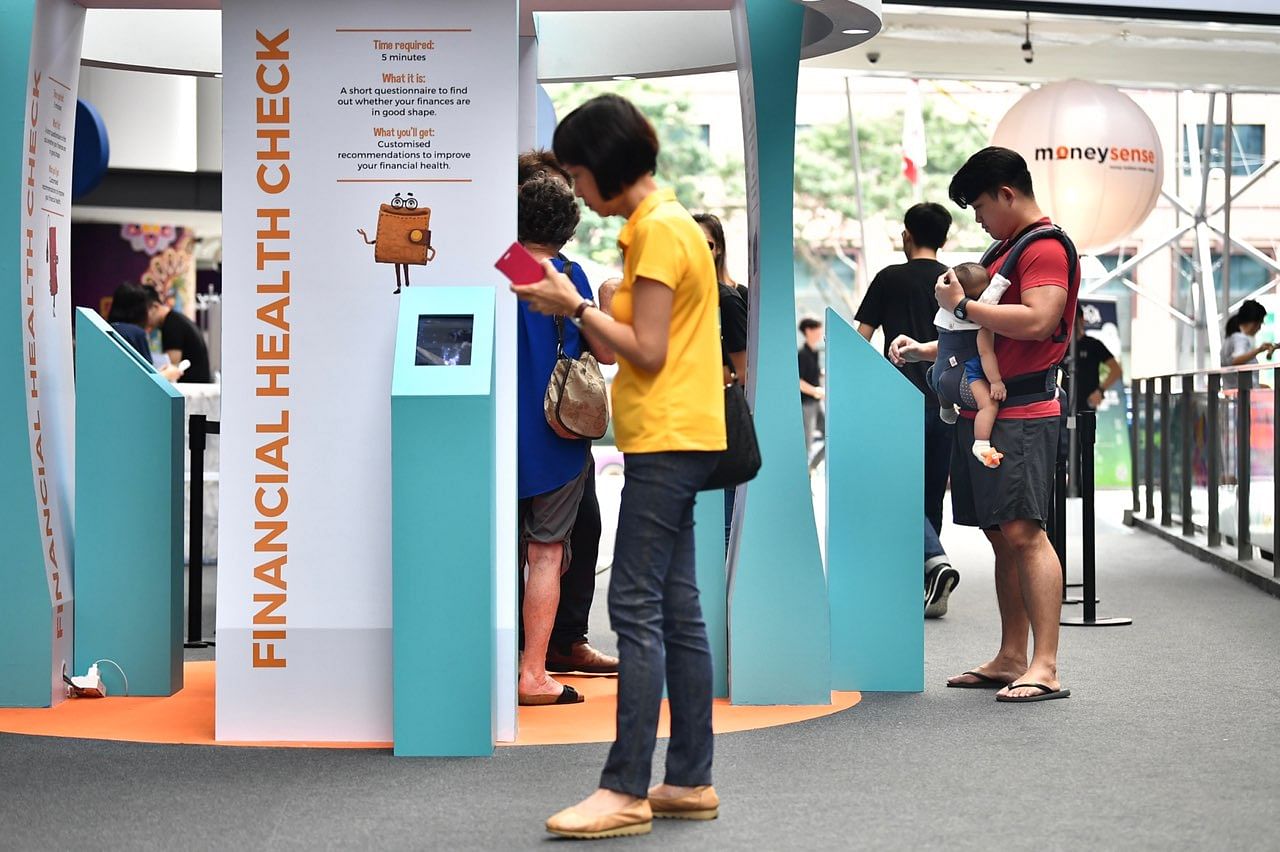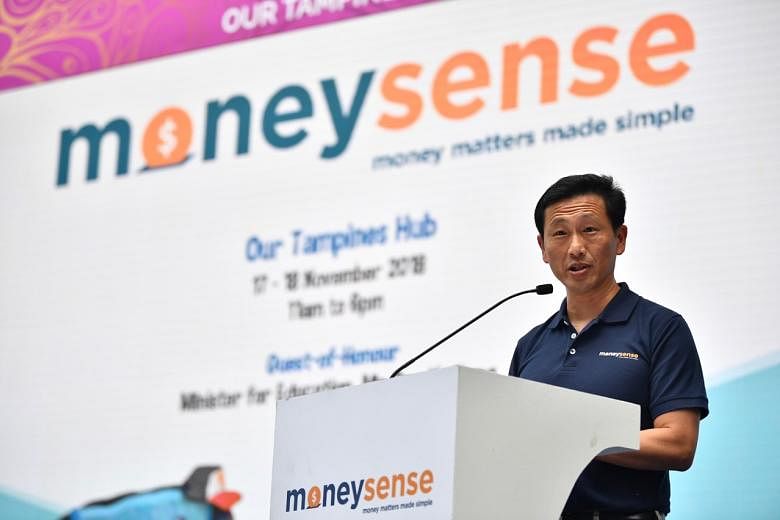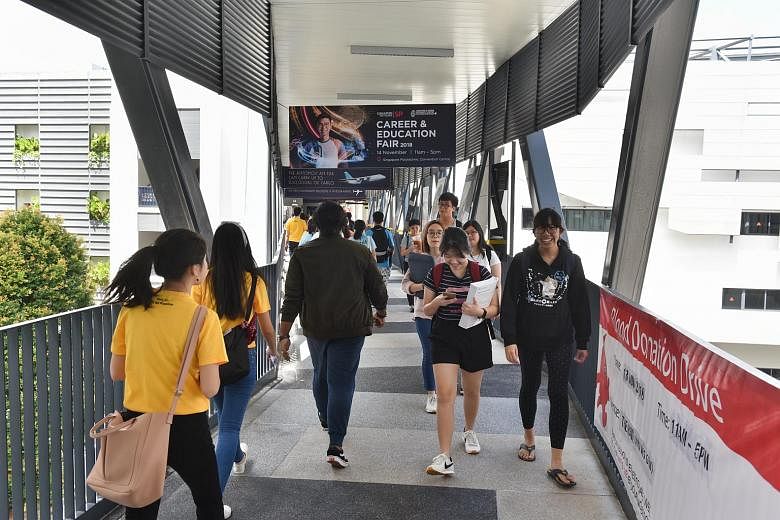SINGAPORE - A financial education curriculum will be rolled out to all polytechnic and Institute of Technical Education (ITE) Year 1 students from next year, as part of government efforts to boost financial literacy among Singaporeans and help them manage their money well.
The mandatory module, which will not be graded, will focus on budgeting, goal-setting and financial basics such as the effect of compound interest on debt and savings.
Additional modules will also be piloted with some Year 2 and 3 students over the next few years to help them become more savvy consumers and learn how to use insurance, investments, and national schemes such as the Central Provident Fund.
This was among several new initiatives announced on Saturday (Nov 17) by MoneySense, Singapore's national financial education programme.
An online financial health check tool for all Singaporeans and permanent residents was also launched at the roadshow at Our Tampines Hub, which will run until Sunday before moving to the HDB Hub in Toa Payoh on Dec 8 and 9.
The questionnaire, which is available on the MoneySense website, helps to assess progress in areas such as money management, insurance, investment, retirement and estate planning, and provides recommendations to address the gaps identified.
Services at key government touchpoints will also be enhanced to help Singaporeans better understand their financial options at milestones such as buying a flat and preparing for retirement.

These moves follow a 2017 survey commissioned by the MoneySense Council that found that half of working adults aged between 17 and 29 here had not started planning for future financial needs.
The Nielsen survey of some 2,800 Singapore residents aged between 17 and 75 found that they generally had good money habits, with about two in three saving regularly, but had difficulty with planning ahead.
MoneySense, which was launched in 2003, runs campaigns, talks and workshops on financial education and is overseen by the MoneySense Council, which is co-chaired by the Monetary Authority of Singapore (MAS) and Manpower Ministry.
A MoneySense Council spokesman said that Singaporeans "generally understand what it takes to be financially healthy, but may not translate knowledge into action. The initiatives are aimed at helping Singaporeans actively take charge of their financial health at all stages of their life".
Education Minister Ong Ye Kung said at the launch that the roll-out of the new curriculum follows a successful pilot project involving 7,000 polytechnic and ITE students earlier this year.
"They learnt how to budget and review their expenses, save towards their goals, and discovered their personal spending habits... this helps to better prepare them to manage their own money when they grow up later," said Mr Ong, who is an MAS board member.
The Ministry of Education said in response to queries that the polytechnics and ITE will jointly develop the modules, and have the flexibility to decide how to infuse them into their existing programmes.
From 2019, the first module will also be made available to all pre-university students through the Singapore Student Learning Space portal, a spokesman said.
Singapore Polytechnic student How Shi Yun, who completed the pilot module in October, said that it helped her to create a savings plan.
Ms How, a first-year student in the Food Science and Technology programme, now puts away the money she earns from her part-time job manning a food cart and limits her spending to her $200 a month allowance. She also tracks her expenses according to categories such as food and clothes.
"The module was quite useful as previously I would save some money but wasn't sure how much I was spending and how much I should be putting away. Now I know how to save the money I earn and when I look at my bank balance going up I get happy," said Ms How, 17.

Insurance specialist Nadia Suprakash, who took the financial health check at the roadshow on Saturday, said the recommendations she received were practical, such as growing her investment portfolio and buying Singapore Savings Bonds to help save for retirement.
"Having worked in this industry, there are a lot of people that have a gap in their plans, whether it's in investment or insurance, so things like this help to get them thinking about it," said Ms Suprakash, 29.




